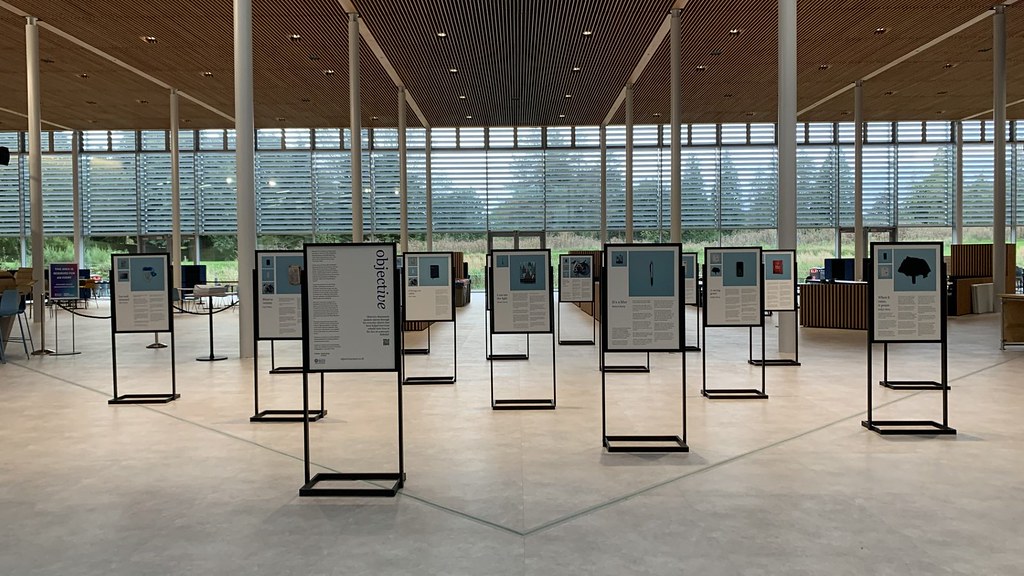Strikingly simple photographs of personal belongings of people with lived experience of modern slavery are laying bare the barriers to recovery they faced after abuse, in a new photo series on display at the University of Bath School of Management from Wednesday 20 September.
Through the airing of first-hand testimony with photographs of survivor's personal belongings significant to their experiences, including an umbrella, a book, and a hand-sewn scissor case, Objective tells a visually-driven story about cutbacks to victim support in the UK for people striving to rebuild their lives in the face of systematic disbelief.
The Objective project team worked with experts-by-experience that had suffered severe exploitation, disclosing how they struggled to access support and justice. They also faced the risk of deportation and immigration detention in prison-like settings, due to a narrowing of support through the Nationality and Borders Act (2022).
Another law passed this year, the Illegal Migration Act, prevents even more survivors from accessing support by disqualifying victims on the basis of their immigration status. The changes prevent many victims from being recognised as survivors, even in cases where they are forced, coerced or deceived into crossing borders without the right paperwork.
“The UK was once at the forefront of modern slavery legislation but now it’s back-pedalling on its commitment to tackling the problem and supporting survivors,” said Professor Andrew Crane, from the University of Bath’s School of Management and Director of its Centre for Business, Organisations and Society, who has supported the project.
“Despite raising the profile of exploitation through the passing of the 2015 Modern Slavery Act, survivors have still faced inconsistent access to support. Many have been locked up in prison-like detention settings, in part, because there is no tailored immigration status for trafficking victims,” Professor Crane said.
Participants were also asked to envision ways the UK could better allow survivors to recover emotionally, financially, socially and physically after modern slavery. Guaranteed access to safe housing and mental health support were among the key calls to action.
To document the reality of life after modern slavery, photojournalist Amy Romer, Maya Esslemont, Director of the non-profit group After Exploitation and researcher Emma Barnes-Lewis invited survivors of trafficking, slavery and exploitation to share insight and develop areas of focus for new reporting on the subject.
One survivor who took part in the workshop was Lily, an artist and PhD student who was exploited in the UK. She brought a hand sewn case for her embroidery scissors, featuring her nephew’s initials. She misses her nephew, and this helps to keep a connection. Lily is unable to sell her work as an artist due to immigration restrictions and is searching for a job under the ‘Shortage Occupations List’. Despite suffering health complications, she is frequently advised to take on care work. Life at the safe house is overbearing and she says it is too reminiscent of her life in exploitation.
Former School of Management PhD student Emma Barnes-Lewis, now based at the Global Reporting Centre who funded the project, said: “Through featuring the testimonies of five survivors’ and their journey through formal support, Objective attempts to shed light on the reality of this new legislation, while envisioning a path towards a more equitable future for those who have survived modern slavery.”
The project is available to view online and will be exhibiting at the ‘Crossing Boundaries: The 2023 Business and Modern Slavery Research conference’ for academic researchers, co-hosted at the University of Bath’s School of Management by Professor Crane and Dr Michael Rogerson from the University of Surrey, a former Bath PhD student.
The photo series is available to view in the School of Management building on the Claverton Campus until Friday 29 September (weekdays 9am-4pm).

